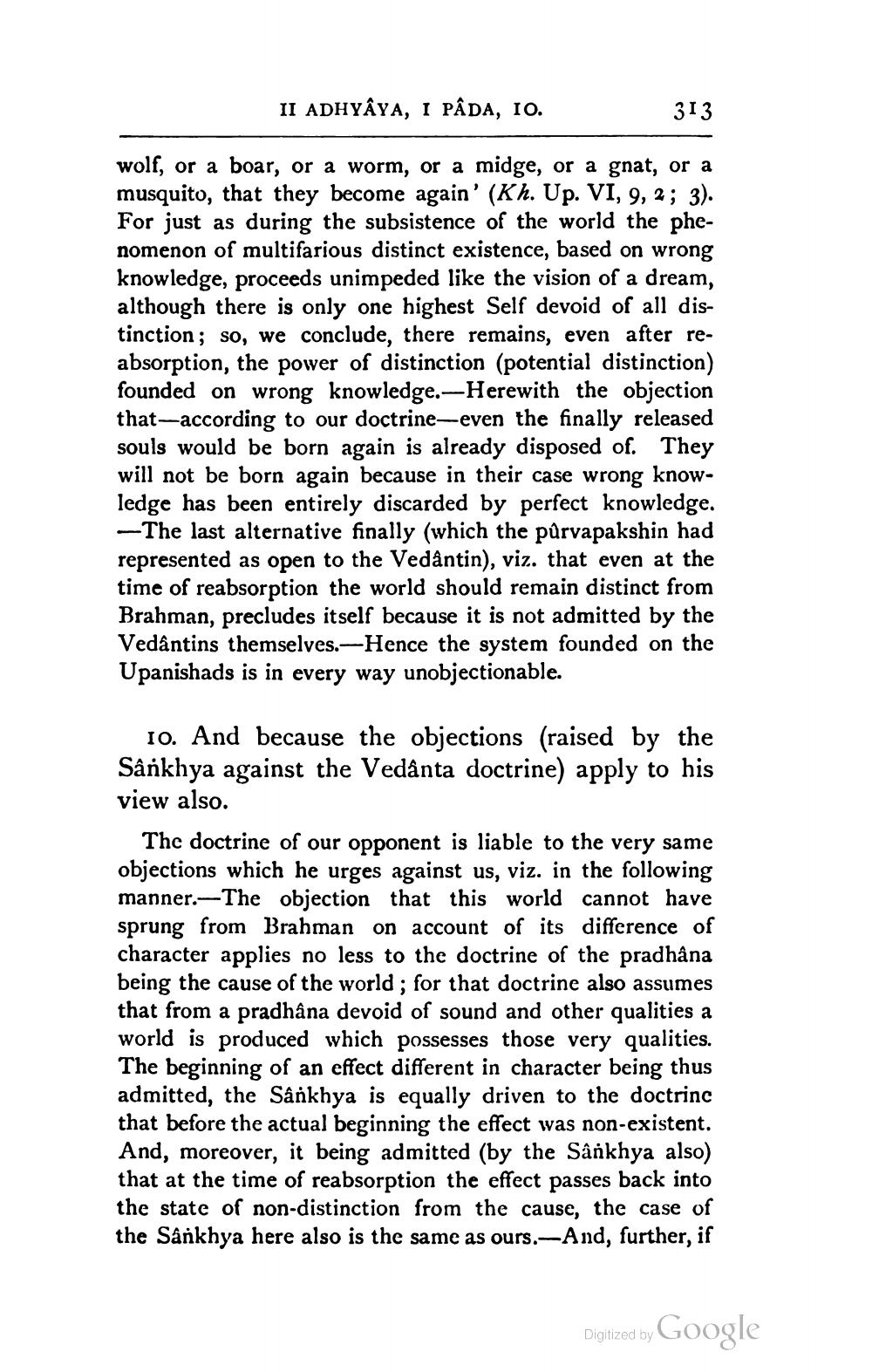________________
II ADHYÂYA, I PÂDA, 10.
313
wolf, or a boar, or a worm, or a midge, or a gnat, or a musquito, that they become again' (Kh. Up. VI, 9, 2; 3). For just as during the subsistence of the world the phenomenon of multifarious distinct existence, based on wrong knowledge, proceeds unimpeded like the vision of a dream, although there is only one highest Self devoid of all distinction; so, we conclude, there remains, even after reabsorption, the power of distinction (potential distinction) founded on wrong knowledge.--Herewith the objection that-according to our doctrine-even the finally released souls would be born again is already disposed of. They will not be born again because in their case wrong knowledge has been entirely discarded by perfect knowledge. -The last alternative finally (which the pûrvapakshin had represented as open to the Vedântin), viz. that even at the time of reabsorption the world should remain distinct from Brahman, precludes itself because it is not admitted by the Vedântins themselves.-Hence the system founded on the Upanishads is in every way unobjectionable.
10. And because the objections (raised by the Sânkhya against the Vedanta doctrine) apply to his view also.
The doctrine of our opponent is liable to the very same objections which he urges against us, viz. in the following manner.-The objection that this world cannot have sprung from Brahman on account of its difference of character applies no less to the doctrine of the pradhana being the cause of the world; for that doctrine also assumes that from a pradhâna devoid of sound and other qualities a world is produced which possesses those very qualities. The beginning of an effect different in character being thus admitted, the Sânkhya is equally driven to the doctrinc that before the actual beginning the effect was non-existent. And, moreover, it being admitted (by the Sânkhya also) that at the time of reabsorption the effect passes back into the state of non-distinction from the cause, the case of the Sankhya here also is the same as ours.--And, further, if
Digitized by Google




